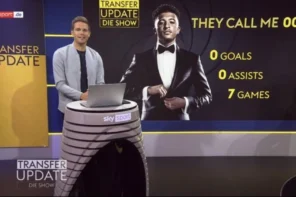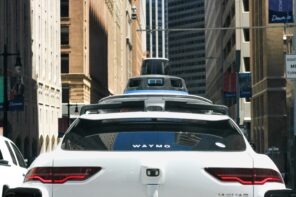To all who dream of racing in Formula One, it is no longer a distant fantasy reserved for the bourgeoisie of the world! The F1 Esports Series allows gamers to race professionally, fiercely competing in an Esports league. Currently in its second season, the series started its qualifications in April and is now revving in its final stage from November 16 to 17. A bold transition for the highest class of auto racing, the Formula One Group – the event organizers of F1 – created the Esports division to halt the sport’s steady decline resulting from the changing interests of their younger demographic.
The F1 video game is not a novel concept. Born in the 1970s as an arcade game, the first F1 simulator game was released in 1992, while the official F1 game series was created in 1996 by Sony. Since 2009, game developer Codemasters acquired the exclusive right to the series and has released versions based on every season, including F1 2017, which F1 Esports finalists will soon be playing.
F1’s Esports championship is not the first of its kind either. The mantle of the first virtual motorsport tournament is held by TV program GT Academy by Nissan and PlayStation between 2008 and 2016, when top gamers of Gran Turismo were given an opportunity to train as a professional racer for Nissan. Their most famous graduate, Jann Mardenborough, started racing in 2011 and still participates in 24 Hours of Le Mans and Formula 3, becoming the sport’s first gamer-turned-racer. Xbox followed suit with its Esports championship based on Forza Motorsport 6, holding the largest racing event in gaming history at Le Mans in 2017.
After decades of targeting a wealthier and more senior follower base, the motorsport industry is finally recognizing the power of young gamers: A Nielsen report revealed that 14% of Americans over the age of 13 are fans of professional gaming, and that the average age of Esports fans and gamers is 26.
The marriage between Esports and F1 coincides with American mass media company Liberty Media’s acquisition of the Formula One Group in 2016, as well as the firing of long-time CEO Bernie Ecclestone, who actively prevented the sport from targeting “youngsters…of no value to F1”. In a now infamous interview, Ecclestone criticized the attention mainstream sports devotes to youths, ranting, “Most of these kids haven’t got any money. Young kids will see the Rolex brand, but are they going to go and buy one? They can’t afford it,” Ecclestone said. “I’d rather get to the 70-year-old guy who’s got plenty of cash. So, there’s no point trying to reach these kids because they won’t buy any of the products here and if marketers are aiming at this audience, then maybe they should advertise with Disney.”
They can’t afford it,” Ecclestone said. ‘I’d rather get to the 70-year-old guy who’s got plenty of cash. So, there’s no point trying to reach these kids because they won’t buy any of the products here and if marketers are aiming at this audience, then maybe they should advertise with Disney.’
Thankfully, Liberty Media embraces ‘Youngsters’, and recognizes the value in a partnership between F1 and Esports, recently hiring Chase Carey, vice-chair of 21st Century Fox, as the new F1 CEO. The F1 simulator exists to give ordinary individuals the opportunity to experience racing at 200 mph behind the wheel of a Formula One vehicle. One such individual, Rudy van Buren, even landed a contract as a McLaren simulation driver under F1 champion Fernando Alonso, after winning the team’s World’s Fastest Gamer championship in 2017. Ironically, the new generation of F1 drivers, including Red Bull star Max Verstappen, has long trained on real tracks during the day and in simulation at night to maximize racing hours, but the sport failed to make the connection between actual racing and Esports.
For the first time, in the 2018 F1 Esports Series, the finalists will represent official F1 teams, instead of role playing as they did the years prior. Although this policy facilitates cross-promotion between Esports and F1 Racing, expanding both their fan bases, it blocks non-sponsored Esports organizations previously involved in the F1 game. Furthermore, the policy forces them to abandon their top players, who now must quit to join F1 teams. Nevertheless, the F1 game now has an official league backed by real teams, a large improvement from the unorganized competitions created by individuals on gaming forums.
Powered by the strategy of newly minted CEO Chase Carey, Formula One is finally embracing the millennial demographic. By embracing Esports, Mr. Carey is unlocking the potential of F1 to be the most immersive Esports experience, with an unparalleled ability of simulating the real thrill. In the Grand Prix for millenial attention, this weekend’s final stage marks a strong surge for Formula One.








